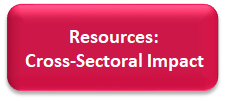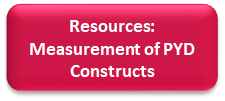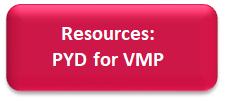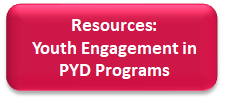Recent Learnings for Understanding How PYD Programs Achieve Positive Impact in LMICs
There are many questions still unanswered about how best to adapt programs which have demonstrated positive impacts to different populations, systems of delivery, and environmental conditions. Recent efforts to review and distill evidence from a variety of similar programs are a very good start.
Aligned with the PYD Learning Agenda key questions, early discussion, and synthesis of recent learnings are included in the links:
1. Do PYD programs in LMICs achieve their longer-term/sectoral outcomes by effecting PYD outcomes?
- Do PYD programs impact their intended PYD outcomes?
- Are changes in PYD outcomes linked to improved longer-term, sectoral outcomes for program beneficiaries?
2. How can PYD programs that have proven to be effective be adapted to different contexts?
- Are there examples of successful adaptations of evidence-based PYD programs in LMICs?
- Are there systematic ways of adapting evidence-based PYD programs to different contexts, situations, or audiences in LMICs?
- What are the most cost-effective ways to adapt PYD programs to specific conditions in LMICs?
Standards of Evidence for Efficacy, Effectiveness, and Scale-up Research in Prevention Science: Next Generation
This article presents the Society for Prevention Research’s standards of evidence for efficacy, effectiveness, scale-up, and reporting of Prevention Science intervention trials.
What Works to Prevent Sexual Violence Against Children: Evidence Review
This brief details findings from a systematic review on what works and what does not work in addressing gender-based violence, particularly among young people living with or affected by HIV in low- and middle-income countries.
Tackling the Taboo: Sexuality and gender-transformative programmes to end child, early and forced marriage and unions
This report showcases promising gender transformative work from politically and culturally conservative contexts to address the control of adolescent girls’ sexuality in child, early and forced marriage and unions. Key programmatic elements and case studies along with recommendations for a range of audiences are presented in the report.
Social and Emotional Learning and Soft Skills USAID Policy Brief
This policy brief provides guidance on desired outcomes and quality standards for programming that teach social and emotional skills or soft skills. Evidence and best practices gaps are identified along with areas in which further investments are needed.
Insights and Evidence Gaps in Girl-Centered Programming: A Systematic Review
A systematic review documenting lessons learned and gaps in the evidence base around adolescent girl-centered programs in LMIC settings.
Building Resilience and Resistance to Child, Early, and Forced Marriage through Acquiring Skills: Findings from Implementation Research in Nigeria
This research study examined the potential for skills acquisition to mitigate the psychological trauma of forced marriages for girl survivors in Northern Nigeria. The findings indicate that skills alone cannot empower girls or form the basis of an alternative to early marriage if access to counseling to address psychological trauma, capital, markets, and mentorship are unavailable. This study recommends a holistic girls' empowerment program design in which skills acquisition interventions for survivors of forced marriage must incorporate psycho-therapeutic programs implemented in safe spaces and long-term timelines that include mentoring support after the program and address infrastructural and historical barriers to true empowerment.
Voices of Hope: Adolescent Girls and Boys Contributing to Individual and Collective Change to Advance Gender Equality in Uganda
This qualitative study sought to identify pathways and enabling factors that positively influence social change in relation to gender inequality. Adolescent girls and boys who had completed Plan International’s Champions of Change gender equality program in Uganda were engaged in this project.
Processing gender: lived experiences of reproducing and transforming gender norms over the life course of young people in Northern Uganda
Findings from an ethnographic cohort study that followed young people aged 10–19 in post-conflict northern Uganda was used to develop a conceptual framework of the negotiation of gender norms through the three life-stage transitions.
Does it take a village? Fostering gender equity among early adolescents in Nepal
Evaluation findings assessing a set of individual, family and community interventions to increase gender equity among very young adolescents (VYAs) in rural Nepal are presented in this article.
Effects of a Social Empowerment Intervention on Economic Vulnerability for Adolescent Refugee Girls in Ethiopia
This article evaluates the effect of an adolescent social empowerment program on economic vulnerability indicators for refugee girls in Ethiopia. Changes in schooling, labor, and engagement in transactional sexual exploitation between the intervention and control arms of female adolescents are examined.
Building caregivers’ emotional, parental and social support skills to prevent violence against adolescent girls: findings from a cluster randomised controlled trial in Democratic Republic of Congo
This article presents results from a cluster randomized controlled trial undertaken in DRC which assessed the added impact of the Creating Opportunities through Mentorship, Parental Involvement, and Safe Spaces (COMPASS) caregiver curriculum to the girls’ curriculum on adolescent girls’ exposure to sexual and other forms of violence, and caregivers’ gender attitudes and parenting behaviors, compared with the COMPASS girls’ programming alone.
Self-efficacy, Agency and Empowerment During Adolescence and Young Adulthood in Ethiopia, India, Peru and Vietnam
This working paper focuses on gender-based differences in self-reported agency and self-efficacy for boys and girls during adolescence and young adulthood. It details the ages at which gaps emerge, the contexts (national and sub-national) in which they are more likely to occur and the conditions that make young people feel more or less empowered.
Marital and Fertility Decision-making: The Lived Experiences of Adolescents and Young Married Couples in Andhra Pradesh and Telangana, India
This report presents findings from a qualitative study exploring married adolescent girls and young couples’ experiences of fertility decision-making in the context of early marital life, in two southern Indian states. This study confirmed the importance of supporting girls across the life course and through particular periods of transition, from being students and daughters, to becoming wives and mothers, each change in status introducing the potential for new risks, vulnerabilities and opportunities.
Relevance, Implementation and Impact of the Sinovuyo Teen Parenting Programme in South Africa: Summary of Findings
This report presents findings from a research study examining the impact, relevance and scalability of the Sinovuyo Teen Parenting Programme. Positive impacts of the programme including improved adolescent/ parent relationships were documented.
Adolescent Sexual and Reproductive Health in Ethiopia and Rwanda: A Qualitative Exploration of the Role of Social Norms
This article highlights evidence generated from a multi-site qualitative research study with male and female adolescents and a range of adult participants focused on their experiences of sexual and reproductive health. The findings show that gendered social norms across the different study contexts influence adolescents’ understandings and experiences. As such, the need for addressing underlying social norms in a more strategic and context-specific way is emphasized.
Adolescent Economic Empowerment in Ethiopia: A Report on GAGE Ethiopia Baseline Findings
Findings from baseline mixed-methods research as part of the Gender and Adolescence: Global Evidence (GAGE) longitudinal study (2015–2024) are presented in this report. Adolescents’ economic aspirations and the aspirations of parents for their adolescent children; the extent to which adolescents are able to acquire market-appropriate skills and access assets and resources needed for future economic empowerment; the availability of decent and age-appropriate employment; and access to age- and gender-responsive social protection are assessed.
Catalyzing Gender Norm Change for Adolescent Sexual and Reproductive Health: Investing in Interventions for Structural Change
Guidance for addressing the gender-based structural underpinnings of ASRH-related social norms, with the aim of expanding both the scope and effectiveness of what are currently termed “social norm interventions” is presented in this commentary.
Adolescent Girls' Agency Significantly Correlates With Favorable Social Norms in Ethiopia—Implications for Improving Sexual and Reproductive Health of Young Adolescents
This study investigates the relationship between adolescent girls’ agency and social norms regarding early marriage, girls’ education, and nutrition in West Hararghe, Ethiopia. A significant correlation between social norms and adolescent girls’ agency was reported thus underscoring the need to tackle harmful social norms in order to improve adolescent girls’ sexual and reproductive health.
Cost and Cost-effectiveness of a Parenting Program to Prevent Violence Against Adolescents in South Africa
This paper presents the costs and cost-effectiveness of ‘Parenting for Lifelong Health: Sinovuyo Teen’, a non-commercialized parenting program aimed at preventing violence against adolescents in low-income and middle-income countries. Parenting programs are a cost-effective intervention to prevent the abuse of adolescents by their caregivers in South Africa, when compared with existing violence prevention program and cost-effectiveness thresholds based on GDP per capita.
Mentoring Interventions and the Impact of Protective Assets on the Reproductive Health of Adolescent Girls and Young Women
The aim of this literature review was to understand the types of mentoring programs for adolescent girls and young women that have demonstrated effectiveness in improving protective assets, and/or, RH knowledge, intentions, behaviors, or outcomes themselves. Group based interventions demonstrated more promise and a positive impact on RH knowledge and behavior, academic achievement, financial behavior, and social networks, as well as reductions in the experience of violence.
Gender Differences in the Effects of Vocational Training: Constrains on Women and Drop-Out Behavior
This policy paper provides experimental evidence on the effects of vocational and entrepreneurial training for Malawian youth. The evaluation found that the vocational training program led to enhanced (self-reported) skills of the type that the training was intended to impact. (2013).
Developmental Assets and Sexual and Reproductive Health among 10 to 14 Year Olds in Uganda
This study report examines the link between internal and external assets that very young adolescents (ages 10 to 14) in north central Uganda may experience, and their sexual and reproductive health. (2016).
Growing Up in the Kayamandi Township: II. Sport as a Setting for the Development and Transfer of Desirable Competencies
This study examined a sport-based youth development program in a South African Xhosa township. The results indicated that competencies developed through sport transferred out of the sport domain and into the participants’ everyday lives. (2016).
A psychosocial resilience curriculum provides the “missing piece” to boost adolescent physical health: A randomized controlled trial of Girls First in India
A randomized controlled trail that assessed the impact of a combined psychosocial resilience and adolescent health program on health outcomes. The results found that health knowledge, gender equality attitudes, clean water behaviors, hand washing, menstrual hygiene, and health communication among participants in the intervention group improved in the intervention versus those in the control group.
Building resilience: a mental health intervention for Tanzanian youth living with HIV
This article describes impact the of a mental health intervention focused on resilience strategies for identifying and coping with stressful events among Tanzanian youth. Findings show that increased resilience among the participants (2018).
Developmental Assets and Academic Performance of Adolescents in Ghana, Kenya, and South Africa
This study examined the association between developmental assets and academic performance in Ghana, Kenya, and South Africa. The results indicated that adolescents with good academic performance reported more developmental assets. (2019).
Umodzi Project: Men, Women, Boys and Girls in Alliance to Achieve Gender Equality. End-line Impact Evaluation Report
This report presents the findings of the end-line evaluation of the Umodzi Project. Umodzi was a two-year action research project to test the effectiveness and scalability of a gender-synchronized, transformational approach that is integrated into existing school-based life skills (LS) and sexuality education programs for 10- to 19-year-old adolescent boys and girls. (2018)
Engaging Coaches and Athletes in Fostering Gender Equity: Findings from the Parivartan Program in Mumbai, India
This report presents results from the pilot evaluation of the Parivartan Program. Parivartan works with men and boys in the context of cricket, both formal and informal, in order to create and promote social norms based upon non-violence and respect towards women and girls, including controlling aggression and gender equity. (2012)
A Model for Transforming the Honduran Workforce
This report details the work of EDC’s Proyecto METAS to improve education for employment, learning, and success in Honduras. METAS aims to provide the young people of Honduras with the opportunity to acquire knowledge and skills for life and work, and the attitudes, behaviors, and perspective necessary to create positive and promising futures. The project supports technical high schools and vocational training programs by helping them create and deliver relevant, up-to-date curricula. (2015)
Youth Volunteers Can Contribute to Significant Reading Gains: Evidence from HYVALL project in Senegal
Students who participated in the Harnessing Youth Volunteers as Literacy Leaders (HYVALL) intervention in Senegal exhibited significantly larger gains in their fluency and reading comprehension from baseline to endline than their comparison group counterparts. These results suggest that an intervention like HYVALL, which gives students opportunities for reading instruction outside the school setting (increasing time on task), provides regular one-on one tutoring and mentoring, and encourages parents’ involvement in the reading development of their children, can lead to significant student improvement in reading.
Accelerating Work Achievement and Readiness for Employment (AWARE) Project Report
This report details the activities of the Accelerating Work Achievement and Readiness for Employment (AWARE) Project, which took a new approach to improve workforce development in Indonesia and the Philippines. (2016)
Akazi Kanoze 2 Final Report: Priorities for Sustainability
This final report for the Akazi Kanoze 2 (AK2) project in Rwanda summarizes the project's outcomes and outlines the priorities for sustainability. Through AK2, EDC worked with Rwanda's Ministry of Education to help young people gain the knowledge, skills, and attitudes they need to participate in the country's expanding economy. (2018)
Growing up GREAT! Baseline Report
This report presents findings from baseline data collection. Growing up GREAT! (GUG!) is a multi-level intervention for very young adolescents (VYAs), their parents and caregivers and other influential community members. (2018). GUG! aims to increase: 1. VYAs’ knowledge of puberty and reproductive development 2. VYAs’ and parents’ gender-equitable behaviors 3. Use of family planning and other reproductive health services among VYAs as they age into older adolescence.
PAnKH - Promoting Adolescents’ Engagement, Knowledge and Health
This brief provides an overview of ICRW’s PAnKH program. The aim of the PAnKH program is to delay age at marriage, increase school retention and improve sexual reproductive health (SRH) of adolescent girls in India through providing the girls with the skills and information they lack as well as create a safe enabling environment in which they can thrive and make the best choices for their future.
21st Century Youth Competencies Assessment Midline Assessment Report
Program evaluation report of IREX’s Partnerships with Youth (PWY) program that seeks to expand educational and leadership opportunities for young people aged 14-29 in the West Bank. PWY creates sustainable hubs for youth innovation and learning, called Youth Development Resource Centers (YDRCs), which offer otherwise unavailable services for youth.
Formative Evaluation of the Youth Civic Engagement and Dialogue Program in Romania and Moldova
Evaluation report of the Youth Civic Engagement and Dialogue (YCED) Program which brings together Roma and majority students in Romania and Moldova to lead and engage in community development projects. YCED targets youth between the ages of 14 and 18. (2012)
Youth Theater for Peace (YTP) Programs In Kyrgyzstan and Tajikistan Final Evaluation
Program evaluation report of the Youth Theater for Peace (YTP) programs in Tajikistan and Kyrgyzstan. YTP programs work to promote sustainable conflict prevention at the community level. (2011). The evaluation indicated that the YTP approach could be an effective in promoting lasting attitudinal and behavioral changes in youth and adults in relation to conflict issues at the community level, relations within the community, and particularly in relation to people of other ethnicities, religions and nationalities.
The Ishraq Program for Out-of-school Girls: from Pilot to Scale-up
Final evaluation report of the Ishraq program. Ishraq is a holistic program for out-of-school girls aged 12–15 years old. The program establishes girl-friendly “safe spaces” where girls can gather, make friends, and learn from female high school graduates from their communities. The program encourages continued schooling, greater mobility for girls and their civic involvement. (2013)
Project YES! Youth Engaging for Success: A peer mentoring program to transition youth to HIV self-management in Zambia
Brier overview led by Project SOAR/Population Council of a peer-mentoring strategy to strengthen the capacity of health systems and families to support youth as they transition to, and engage in, self-management and adult HIV care and treatment. (2017)
Involvement, Motivation, Participation. Action. Community. Teens. (IMPACT) Clubs
This is brief overview of the IMPACT Club developed by World Vision’s (WV) partner, New Horizons Foundation (NHF). The IMPACT Club project model is an integrated approach to adolescent engagement that fosters the skills, behaviours and attitudes necessary for their improved participation in the social, civic and economic life of their communities.
World Vision Adolescent and Youth Development Programming Guidance
Provides guidance, recommended approaches, and highlights critical considerations for World Vision National Offices designing and planning all sectoral and thematic programming for adolescents and youth.
Cost Analysis for Positive Youth Development: A Brief Literature Review
This YP2LE-led literature review looks at how PYD programs have carried out cost-effectiveness and cost-efficiency analyses, focusing specifically on what components of youth programs have been tracked and measured. The findings from this review will support the development of guidance and tools that will help USAID better understand the value for money of investments in youth programming.











